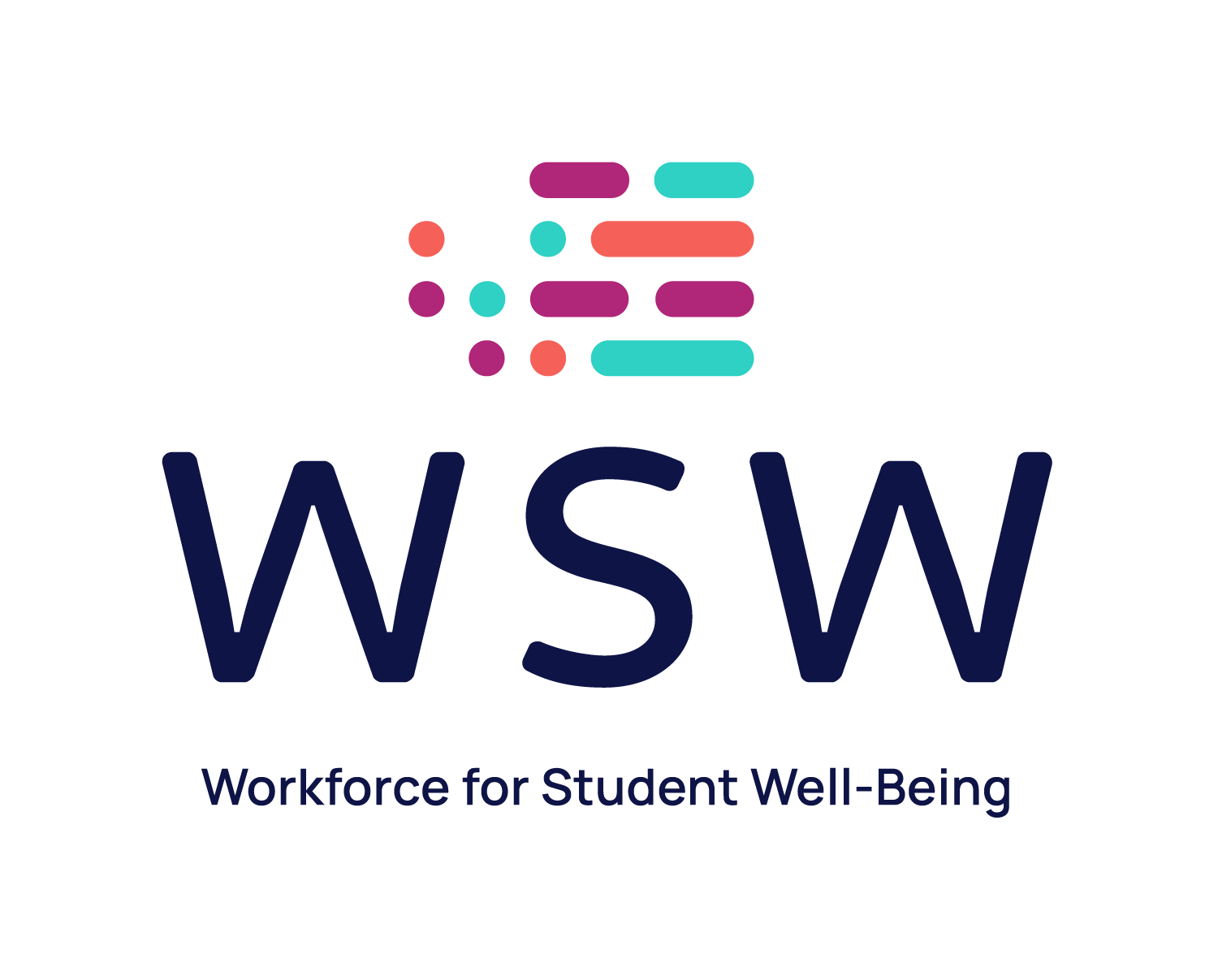About the WSW Initiative
Over 20% of all K-12 students experience social, emotional, and behavioral problems that compromise their readiness to learn. Since 2010, the rates of students reporting depression and anxiety have increased by nearly 50% with suicidal behavioral also on the rise and beginning as young as age 10. The COVID-19 pandemic exacerbated these challenges.

Providing Help Where Youth Spend Their Time: In Schools
Schools are the most common setting in which children and youth receive mental healthcare.
– Duong, Bruns, et al., 2021

Addressing the Mental Health Workforce Crisis
84% of schools across the nation say it
will be somewhat or very difficult to fill
mental health positions in schools.
– 2022 Kaiser Family Foundation Survey

Increasing the Racial Diversity of the Workforce
Nearly 80% of the mental health workforce in Washington is white, compared to only
49% of Washington’s K-12 students.
– Washington Health Care Authority/Washington OSPI
Despite the need, less than half of all K-12 students who need services receive them. In Washington state, K-12 students have even higher rates of mental health disorders than the nation as a whole and have a harder time getting help. The Workforce for Student Well-Being Initiative aims to help address this problem by increasing the numbers, skills, and diversity of school mental health practitioners, with an initial focus on Master’s level School Social Workers.
The Workforce for Student Well-being (WSW) Initiative
In response, Washington state was recently awarded $6 million from the U.S. Department of Education to create a pipeline from Washington state’s five accredited Masters in Social Work training programs to Washington state’s K-12 schools. Called the Workforce for Student Well-being Initiative or WSW, 100 aspiring school social workers will receive conditional scholarships based on their financial need so the cost of getting an education is not a barrier to their getting an advanced degree and then committing to working in a high-need public or tribal school.
Primary Goal
The primary goal of the Workforce for Student Well-being (WSW) Initiative is to help all K-12 students in Washington state to thrive. WSW also advances the careers of skilled social work professionals through training, mentorship, and financial supports by preparing graduate students to work in high-need public and tribal schools supporting K-12 students.
Our Model

Washington’s Workforce for Student Well-being is an initiative funded by the US Department of Education that is serving as a pilot for a broader statewide initiative to grow and sustain Washington’s behavioral health workforce.
School-based mental health professionals, or Educational Staff Associates (ESAs), are gravely needed to mitigate the youth mental health crisis. The goals of the WSW are to increase the number, skills, and diversity of the school-based behavioral health workforce in Washington State by pairing conditional scholarships with top-notch training, and career supports, and work on the policy front to make this rewarding and demanding work with students sustainable.
All institutions of higher education training school-based behavioral health professionals are invited to this work. We all need to work together for our kids… behavioral health professionals, state agencies, school districts, philanthropists, and elected officials. When we have an effective school behavioral health workforce in place, we have healthier schools and communities for all.
*At least fifty percent of WSW conditional scholarship recipients are racially diverse with additional participant representation in terms of gender diversity, neurodiversity, disability status, and first-generation college students.
WSW Social Workers Will:
Be placed in an advanced practicum placement in a high-need public or tribal school
- Receive pre-service training in the form of a 30-hour “Community of Practice” with peers across the state
- Attend a statewide professional networking retreat with peers and mentors
- Receive their Educational Staff Associate (ESA) certificate
- Receive career placement support to take a leadership role in a high-need public school after graduation
To learn more about the U.S. Department of Education grant and its transformative impact in Washington state, read this article.
To learn more about this initiative
read the FAQ below.


